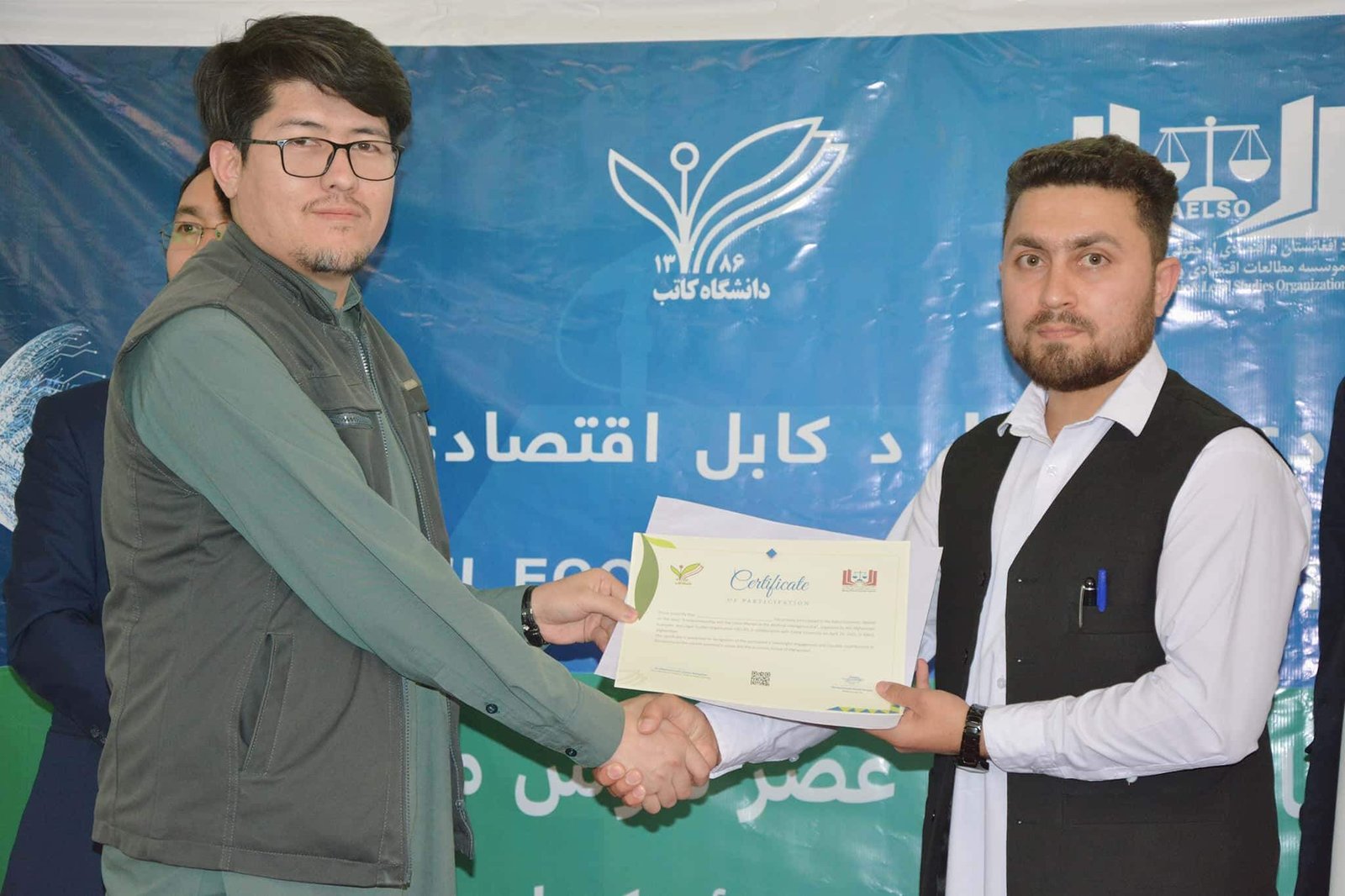
Kabul Economic Debate: Entrepreneurship and Market Management with Artificial Intelligence
The Kabul Economic Debate, on the theme “Entrepreneurship and the Labor Market in the Artificial Intelligence Era,” was organized by the Afghanistan Economic and Legal Studies Organization (AELSO) in collaboration with Kateb University. Scholars, youth and economic activists from across Kabul gathered to examine the impact of artificial intelligence on entrepreneurial opportunities and labor-market transformations in Afghanistan.
Following the opening remarks by Abdul Qaher Beheshti from AELSO’s team, Dr. Muhammad Yahya Balaghat, Vice Chancellor for Academic Affairs at Kateb University, introduced the topic and outlined the scientific framework for debate. The debate then proceeded as the panelists took the stage.
Dr. Ali-Naqi Erfani, Professor of Economics, presented economic outlooks and labor-market needs. He emphasized, “The future labor market will require an intelligent human-machine partnership; therefore, every individual must develop not only technical knowledge but also cognitive abilities and creativity.”
Dr. Muhammad Waris Mohammadi, Professor of Computer Science, analyzed the opportunities and challenges facing entrepreneurs. He stressed that “in the artificial intelligence era, entrepreneurs must strengthen their technological skills in order to leverage data and algorithms for identifying new markets.”
During the question-and-answer session, participants raised many practical issues, including the importance of technological infrastructure, access to high-speed internet, and the necessity of governmental and non-governmental support for startup development. Each panelist provided detailed responses, reflecting their deep experience and understanding.
In their concluding remarks, Dr. Erfani and Dr. Mohammadi reviewed the key points. They agreed that building a dynamic and intelligent entrepreneurial ecosystem in Afghanistan requires collaboration among universities, the private sector, and government, and that targeted educational programs and investments in AI-related fields must be strengthened.
Dr. Najibullah Arshad, Dean of the Faculty of Economics at Kateb University, summarized the debate by underscoring that artificial intelligence represents a golden opportunity to accelerate innovation in Afghanistan. He noted that only by combining local knowledge with emerging technologies can we create business models that respond to domestic and regional needs. He highlighted the need to enhance young people’s digital skills, ensure sustainable IT infrastructure, and establish a transparent support ecosystem among university, industry, and government to provide technical and financial supports to entrepreneurs. He expressed hope that, through this synergy, Afghanistan’s innovative youth can become pillars of the country’s sustainable development.
AELSO believes that artificial intelligence opens a new gateway to unparalleled opportunities for the country’s youth and entrepreneurs. Now more than ever, we must invest in practical training, offer technical support, and foster interaction among universities, industry, and government to ignite the sparks of innovation in the minds of Afghanistan’s citizens. Let’s work together to build a knowledge-based economy, transform obstacles into opportunities, and, by trusting in our capacity for innovation, create a country where every bold idea can become a success story in smart entrepreneurship.












